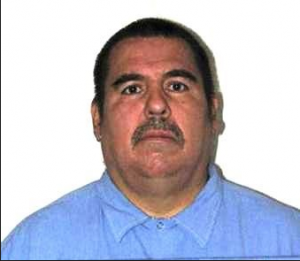
Death Penalty Taken Off the Table in Orange County Trial Tainted by Prosecutorial Misconduct
In two weeks, Scott Dekraai, who confessed to killing eight people and wounding another in October 2011, in the worst mass killing in Orange County

In two weeks, Scott Dekraai, who confessed to killing eight people and wounding another in October 2011, in the worst mass killing in Orange County

Mark James Asay was executed in Florida late last month, the first execution in the state since January 2016, when the U.S. Supreme Court’s ruling

Missouri Gov. Eric Greitens issued a stay of execution late last month for Marcellus Williams based on new DNA evidence. The stay was issued hours
In Ohio, 45-year-old Gary Otte is scheduled to be executed next Wednesday for two murders in 1992. Otte’s lawyers are challenging both the state’s lethal

John T. Thorngren is 76 years old, and has had three heart attacks and two open heart surgeries. But he had one last item on
In a guest editorial in the St. Louis Post-Dispatch, Stephen Cooper calls on Missouri Gov. Eric Greitens, who late last month stayed the execution of
The California Supreme Court today upheld Proposition 66, which will radically change the state’s current death penalty law, and will most likely open the door

A Kentucky Circuit Judge ruled last week that it is unconstitutional to sentence to death a defendant who is under the age of 21. He

After an 18-month hiatus following the U.S. Supreme Court’s Hurst v. Florida decision, Florida is gearing up to begin executions again. Yesterday, the Florida Supreme
Dear Supporters, A couple of years ago, campaigning with the New Hampshire Coalition to Abolish the Death Penalty, I met Republican State Sen. Kevin Avard, a good man who listened and gave the issue a lot of thought. He then voted with us on a bill to abolish state killing in his state that lost by one vote. To add insult to injury, Sen. Avard lost his seat in the

Charles Ray Finch left North Carolina’s Greene Correctional Institution in a wheelchair last Thursday, 42 years after first being sentenced to death for a crime he was wrongfully convicted of committing. Finch was released after a unanimous panel of the Fourth Circuit Court of Appeals found in January that the “totality of the evidence, both old and new, would likely fail to convince any reasonable juror of his guilt beyond

Florida plans to kill Bobby Joe Long tomorrow for the murder of Michelle Sims in 1984, although he pleaded guilty to killing eight women and sexually assaulting dozens of others during eight months of that year. But Long had an abusive childhood and a traumatic brain injury and, as the Florida Conference of Catholic Bishops said in a letter to Gov. Ron DeSantis: “Since his sentencing [1985], modern medicine has

(Tennessee is planning to execute Don Johnson tonight for the murder of his wife, Connie, in 1984. Johnson is a very different man from the one who walked onto death row all those years ago. He became a Seventh Day Adventist, and was ordained by that church as a deacon because of the ministry work he has been doing with other condemned prisoners, which includes Bible study classes. Church officials

Douglas Stankewitz, the longest serving prisoner on California’s death row, was re-sentenced to life without parole last Friday. Stankewitz, who is 60, was sentenced to death in 1978 when he was 19. In 2012, when the Ninth Circuit Court of Appeals overturned Stankewitz’s death sentence, agreeing with a district court that he had had ineffective assistance of counsel during the penalty phase, the Fresno County DA’s office indicated it would

It was the first death sentence a Georgia jury has delivered in five years, and it was handed down last week to a woman who insisted on representing herself during the trial, presented no evidence, never addressed the jury, and didn’t ask witnesses any questions. “What is clear from her actions and her emotionless response at the end of the trial is that, whether it is a mental health issue

Seventeen years after the U.S. Supreme Court found in Atkins v. Virginia that executing intellectually disabled prisoners constitutes cruel and unusual punishment in violation of the Eighth Amendment, the Texas House last week approved by voice vote a bipartisan measure that would put in place a system to determine whether a defendant has intellectual disabilities and is therefore ineligible for execution. The bill is in response to the U.S. Supreme

Five years after a statewide task force appointed to study Ohio’s death penalty released a report with 56 recommendations to improve the state’s deeply flawed system, the state may implement one of three recommendations for dealing with mentally ill defendants. Of the three the task force suggested, which included enacting legislation to prohibit capital charges against defendants who suffered from “serious mental illness” at the time of the crime or
In Virginia, the Fourth Circuit Court of Appeals last week upheld a district court ruling that death row prisoners’ long-term detention in solitary confinement creates a “substantial risk” of psychological and emotional harm. The Fourth Circuit also agreed that the state was “deliberately indifferent” to the risk. This decision by the Fourth Circuit means the state cannot reinstitute solitary confinement and other conditions the district court found unconstitutional in 2018. In